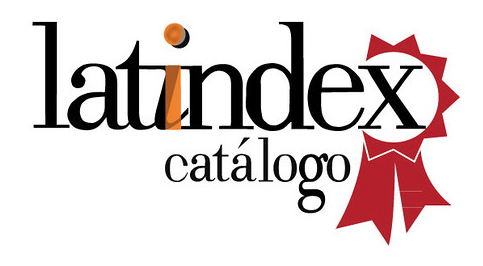The Bauhaus (1919-1933) and the digital agenda
Texto completo:
PDF (English)Resumen
Abstract
Hungarian painter and photographer László Moholy-Nagy (1895-1946) published Malerei, Fotografie, Film in 1925 as part of the Bauhaus book series (Bauhausbucher). After attending several free art schools in his home country, Moholy-Nagy worked as a painter and got in touch with several avant-garde groups such as the Dadaists and the Constructivists. He met Walter Gropius (1883-1969) through Adolf Behne (1885-1948), and was immediately appointed in 1923 as a ‘Master’ at Weimar’s Bauhaus. At first, his work was focused on typographic design, experimental photography and film. He directed the preliminary course and the metal workshop in Wiemar and Dessau after 1925. He left the school in 1928, a year after Gropius. They had been responsible of directing the Bauhaus Book series. In 1929, Moholy-Nagy published a second book, the 14th and last edition of the series: Von Material zu Architektur. While Malerei, Fotografie, Film insights developed a unique approach to photography and film; Von Material zu Architektur preceded theories being addressed today on materiality and ornament. The paper aims to decipher Moholy-Nagy’s seminal Bauhaus texts significance as a theoretical body of the digital turn, developed since the end of World War II. Moreover, it aims to situate the Bauhaus –and the modern ideal and the dialectic between the hand-made and the mechanical made– within the ongoing digital culture. The translation of Moholy-Nagy’s theories from Europe to the US, as part of the Bauhaus Diaspora, becomes crucial when to understand the aforementioned assumptions: In 1937, Moholy-Nagy became founder and director of the New Bauhaus American School of Design; and after his death in 1946 his work was developed by his former collaborator György Kepes (1906-2001) at the MIT, where he founded the Center for Advanced Visual Studies in 1967. The institute had become a new ‘techno social’ model of science-based research university.
Palabras clave
Referencias
ALOFSIN, Anthony: American Modernism´s Challenge to the Beaux-Arts. En OCKMAN, Joan: Architecture School. Three Centuries of Educating Architects in North America, The MIT Press Ed., Cambridge y Londres, 2012.
BERGDOLL, Barry; DICKERMAN, Leah: Bauhaus 1919-1933, Workshops for Modernity. Museum of Modern Art Ed., New York, 2010.
CARPO, Mario: The Alphabet and the Algorithm. The MIT Press Ed., Cambridge MA, 2011.
CARPO, Mario: The Digital Turn in Architecture 1992-2012. AD Reader, John Wiley & Sons Ltd Ed., Chichester, 2013.
DUTTA, Arindam: A Second Modernism: MIT, Architecture and the `Techno-Social Moment´. The MIT Press Ed., Cambridge, MA, 2013.
GROPIUS, Walter: The New Architecture and the Bauhaus. Faber and Faber Ed., Londres, 1935.
KEPES, György: The Language of Vision. Pual Theobald and Company Ed., Chicago, 1944.
KEPES, György: The MIT Years, 1945-1977. The MIT Press Ed., Cambridge MA, 1978.
LEACH, Neil: The Anaesthetics of Architecture. The MIT Press Ed., Cambridge MA and London, 1999.
MOHOLY-NAGY, Lazslo: Pintura, fotografía, cine: y otros escritos sobre fotografía. Gustavo Gili Ed., Barcelona, 2005 [Original: Malerei, Fotografie, Film, En Bauhausbücher, 8, Albert Langen Ed., Munich, 1925].
MOHOLY-NAGY, Lazslo: La Nueva Vision y Reseña de un artista. Infinito Ed., Buenos Aires, 1963 [Original: Von Material zu Architektur, En Bauhausbücher, 14, Albert Langen Ed., Munich, 1929].
OCKMAN, Joan; SACHS, Avigail: Modernism Takes Command. En OCKMAN, Joan: Architecture School. Three Centuries of Educating Architects in North America, The MIT Press Ed., Cambridge y Londres, 2012.
PICON, Antoine: Architecture and the Virtual: Towards a New Materiality. En SYKES, A. Krista: Constructing a New Agenda: architectural Theory 1993-2009. Princeton Architectural Press Ed., Nueva York, 2010.
PICON, Antoine: Digital Culture in Architecture. An introduction of the design professions. Birkhäuser Ed., Basel, 2010.
Enlaces refback
- No hay ningún enlace refback.
Copyright (c) 2018 Autor / BY-NC-ND









